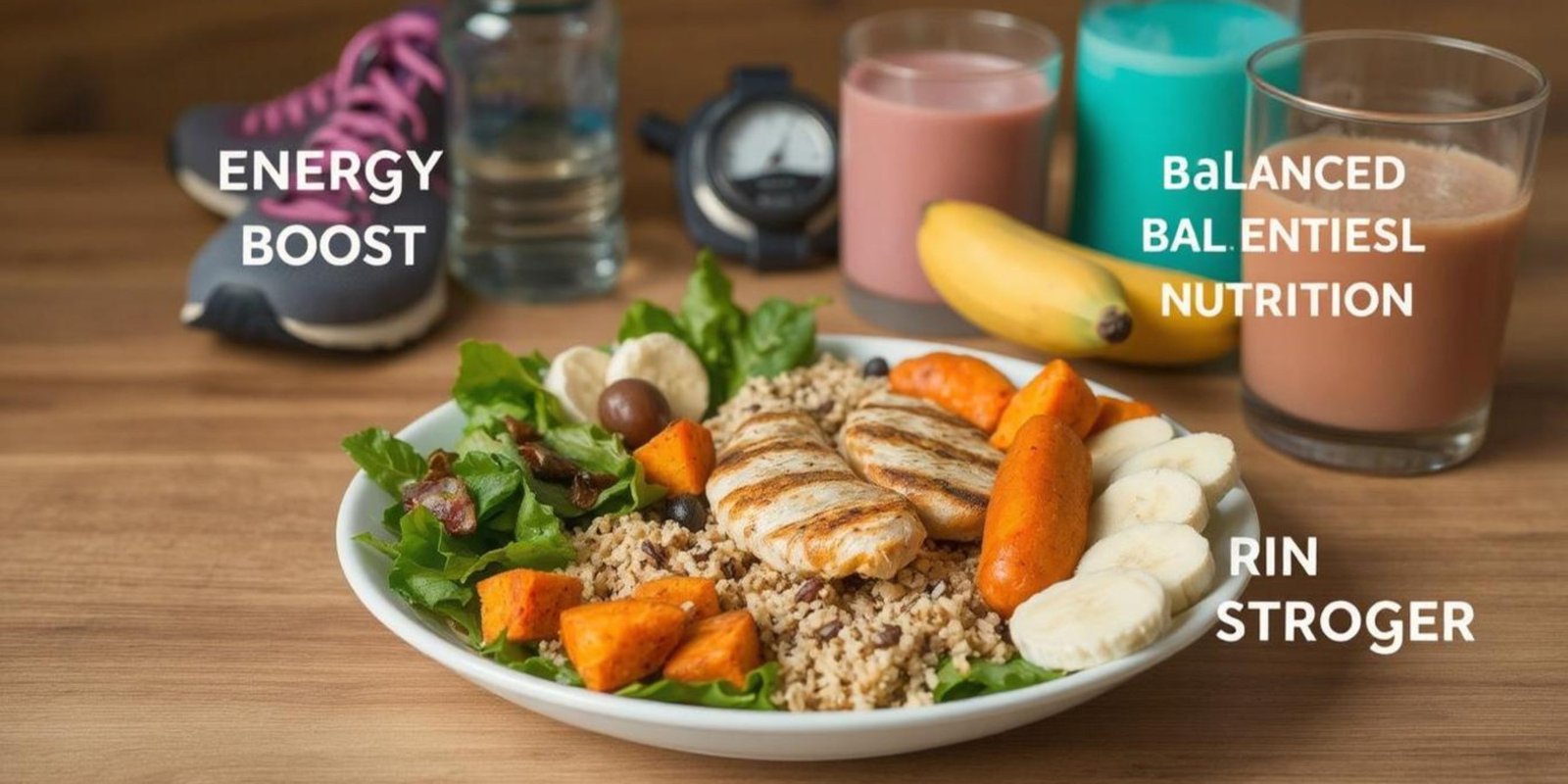

Dt. Natasha Mohan
Dietitian Natasha Mohan is one of the most influential and renowned nutritionist and dietitian, with over 3 Million Followers on YouTube and 200+ Million Views and with 10+ Years of Experience. Dietitian Natasha Mohan is a transformation expert, Motivational Speaker and Lifestyle Expert. She has touched million of lives. She specializes in Therapeutic Diets Like, PCOS/PCOD, Thyroid, Diabetes, Cholesterol, Blood pressure, and other lifestyle disorder.
Table of Contents
Best Diet Plan for Runners: Nutrition Guide to Boost Stamina
Whether you’re a beginner or a marathon enthusiast, following the right diet plan for runners is essential to enhance stamina, improve performance, and support recovery. The food you eat before, during, and after your runs significantly impacts your endurance and energy levels. In this guide, we’ll explore the best nutrition strategies every runner should adopt to stay energized and strong.
Why Nutrition Matters for Runners
Running is a high-impact cardiovascular exercise that places unique demands on the body. Unlike general fitness routines, runners need a diet that:
Fuels workouts
Enhances endurance
Aids muscle recovery
Prevents fatigue and injuries
Following a balanced diet plan for runners ensures your body has the right fuel to perform and recover efficiently.
Key Nutrients in a Runner’s Diet
To create an effective diet plan for runners, it’s important to focus on these key nutrients:
1. Carbohydrates – The Primary Fuel
Carbs provide the energy runners need. Include complex carbs like:
Whole grains (brown rice, oats, quinoa)
Fruits and vegetables
Legumes
Aim for 60–65% of your total calories from carbohydrates, especially before long runs.
2. Proteins – For Muscle Repair
Proteins aid in repairing muscle tissue. Include:
Eggs
Greek yogurt
Paneer or tofu
Lentils and legumes
Lean meats (if non-vegetarian)
Around 15–20% of your total calories should come from protein.
3. Fats – Long-lasting Energy
Healthy fats are essential for endurance and hormone regulation. Add:
Nuts and seeds
Avocados
Olive oil
Ghee (in moderation)
About 20–25% of your total calories can come from good fats.
4. Vitamins and Minerals
Runners must not ignore micronutrients like:
Iron (leafy greens, jaggery, beetroot)
Calcium (dairy, sesame seeds)
Magnesium (bananas, dark chocolate)
B12 (fortified foods or supplements)
Hydration is equally crucial – drink 2.5 to 3 liters of water daily.
Sample Daily Diet Plan for Runners
Here’s a sample vegetarian-friendly diet plan for runners that supports stamina, muscle recovery, and overall health:
Morning (Pre-run)
1 banana or a slice of toast with peanut butter
1 glass of water with chia seeds
Post-run (Recovery)
Protein smoothie with milk, banana, soaked almonds, and a scoop of whey or plant protein
Breakfast
Oats porridge with fruits and nuts
Boiled eggs or paneer cubes
Lunch
Brown rice or roti (2)
Moong dal or rajma
Mix veg sabzi
Salad + Curd
Evening Snack
Sprouts chaat or sweet potato
Herbal tea or coconut water
Dinner
Quinoa or millet khichdi
Grilled vegetables or soup
A piece of dark chocolate (optional)
Before Bed
A glass of warm milk with turmeric (haldi)
Customize this diet plan based on your training intensity and calorie needs.
Smart Eating Tips for Runners
To make the most of your diet plan for runners, follow these smart tips:
Don’t skip meals – It can reduce energy and delay recovery.
Plan meals around workouts – Eat light before and protein-rich after runs.
Practice carb-loading – For long-distance races, increase carb intake 2 days prior.
Avoid processed and junk food – It adds empty calories and slows performance.
Listen to your body – If you feel weak, tired, or bloated, make necessary adjustments.
Final Thoughts
Stamina, endurance, and overall health are not just built on training but also on a well-designed diet plan for runners. By including the right nutrients in your daily meals, such as understanding Aloo Paratha benefits — which can provide a good balance of carbohydrates, fats, and proteins when prepared healthily — and staying consistent with your hydration and recovery strategies, you’ll feel more energized, recover faster, and perform better. Remember, food is your fuel — choose it wisely and run stronger every day. Stick to your personalized diet plan for runners, and your body will thank you at the finish line!
A banana, toast with nut butter, or a small bowl of oats are great options. Keep it light and carb-rich.
Not always. If you’re not meeting your protein needs through food, a supplement can help, especially post-workout.
Runners should aim for 2.5–3 liters daily, and more on days with intense training or long-distance runs.
Yes, with careful planning. Include a variety of plant proteins and consider B12 and iron supplementation if needed.
Yes. Reduce your carb intake slightly and focus more on protein and micronutrients to aid muscle recovery.


